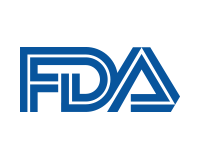United States Department of Health and Human Services

United States Food and Drug Administration: Publications
ORCID IDs
orcid.org/0000-0001-8087-3968
Date of this Version
2020
Document Type
Article
Citation
J. Chem. Inf. Model. 2020, 60, 2396−2404
https://dx.doi.org/10.1021/acs.jcim.0c00139
2020 American Chemical Society
Abstract
Despite the well-known adverse health effects associated with tobacco use, addiction to nicotine found in tobacco products causes difficulty in quitting among users. Nicotinic acetylcholine receptors (nAChRs) are the physiological targets of nicotine and facilitate addiction to tobacco products. The nAChR-α7 subtype plays an important role in addiction; therefore, predicting the binding activity of tobacco constituents to nAChR-α7 is an important component for assessing addictive potential of tobacco constituents. We developed an α7 binding activity prediction model based on a large training data set of 843 chemicals with human α7 binding activity data extracted from PubChem and ChEMBL. The model was tested using 1215 chemicals with rat α7 binding activity data from the same databases. Based on the competitive docking results, the docking scores were partitioned to the key residues that play important roles in the receptor−ligand binding. A decision forest was used to train the human α7 binding activity prediction model based on the partition of docking scores. Five-fold cross validations were conducted to estimate the performance of the decision forest models. The developed model was used to predict the potential human α7 binding activity for 5275 tobacco constituents. The human α7 binding activity data for 84 of the 5275 tobacco constituents were experimentally measured to confirm and empirically validate the prediction results. The prediction accuracy, sensitivity, and specificity were 64.3, 40.0, and 81.6%, respectively. The developed prediction model of human α7 may be a useful tool for high-throughput screening of potential addictive tobacco constituents.
Included in
Dietetics and Clinical Nutrition Commons, Health and Medical Administration Commons, Health Services Administration Commons, Pharmaceutical Preparations Commons, Pharmacy Administration, Policy and Regulation Commons


Comments
2020 American Chemical Society